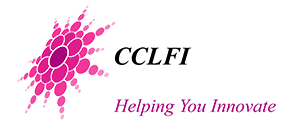These tables analyze the project's success using KPA tools. You can also view the executive summary of the project.
Capital/Assets and Vulnerabilities Before the Project
| ASSETS/CAPITAL | VULNERABILITIES | |
| FINANCIAL CAPITAL |
+ Savings and capital build-up among the organized poor. |
- Economically disadvantaged majority |
| STAKEHOLDER CAPITAL |
+ NPF’s present social franchising technology is the result of the DOH and years of learning lessons from "foreign experts" in evolving a delivery system of medicines to the poor. The franchise package includes revolving stock, monitoring, computerized accounting systems and training programs. + Government people are experienced in tri-partite program implementation, so are relatively easier to work with, reasonable, transparent and accountable in joint programs. + PEF committed to support the project’s institutional and client development, and willing to provide leverage for AFON to advance. |
- Local DOH-BFAD and RHUs are not so aware / convinced of the NPF being a serious national government health program. |
| NATURAL CAPITAL |
+ Elongated seacoast (marine resources) to the west, and the Madya-as Mountain range (forest resources) to the east. + Not along the typhoon path, not vulnerable to natural disasters |
- More than half of land area not suitable for agriculture because of the steep slope and serious erosion problem - Denuded forests - Dwindling marine resources due to illegal fishing and over-fishing |
| STRUCTURAL CAPITAL & INSTITUTIONAL RESOURCES |
+ People organizations and processes. Network of primary coops, people organizations, self-help groups, coalitions and alliances in the province with well-established by-laws, policies and systems. Many potential owning organizations that can manage and operate a Health Plus Outlet retail franchise. + Area coverage, dispersal and years in existence. AFON is present in all the eighteen municipalities so there is no need to establish a new group to reach out to far-flung places. Most of these organizations have existed for over a decade. AFON has almost twenty years of experience working as a network with heterogeneous interests but finding ways to work as one. + Economic structures and processes. Multi-purpose coops are a significant economic force in some municipalities operating a credit union, consumers’ store, cable TV and other services. + Enabling laws and enforcement of laws. The Law on Generic Drugs and the Botika ng Barangay (BnB) law promote generics and the establishment of community pharmacy outlets that will make medicines affordable and accessible to the poor. DOH-BFAD monitors distribution of drugs, maintains standards. + Governance. Existence of Provincial Development Council, Municipal Development Council where AFON is represented; existence of Barangay Development Councils, but not in all barangays + |
- Devolved health department has cut down resources for public health services including hospital care, free medicines, and other health services. - Problematic financial sustainability of AFON secretariat operations; some NGO and PO organizations are oriented more towards advocacy rather than economics |
| HUMAN CAPITAL |
+ Resourceful and influential AFON executive director. He works late hours, constantly looks for solutions to problems along the way, and thinks about future possibilities. + General competence and professionalism of AFON affiliates in managing service-oriented businesses particularly in running successful cooperatives + Presence of personnel in barangay RHUs: doctors, barangay health workers (BHW) and barangay nutrition scholars (BNS)
|
- Half the population of Antique live below the poverty line; - Provincial health status indicators below national average; prevalence of preventable diseases; - Some of AFON people organizations are not business-oriented/enterprising, more inclined to advocacy work; - BHWs and BNS who will be tapped as HPO operators have limited backgrounds in selling, recording or preparing financial statements. - Some medical personnel are also into the pharmaceuticals business and views HPOs as competitors.
|
| SOCIAL AND CULTURAL CAPITAL |
+ AFON and their member organizations on the ground have harmonious relationships with the LGU’s established through the years either as professional partners or as personal friends. + Tradition of "cooperativism" – a profitable business owned, operated and serving its members. Major businesses are operated by cooperatives – consumers’ store, credit coops, cable TV, etc. + "Captured market" – AFON has many individual members who can patronize Health Plus outlets
|
- "Branded is better than generics" mentality among the general populace and some RHU personnel. - Negative attitude of people to Botika ng Barangay (BnB); failure of original government program so that many regard HPOs as no different from the BnBs of some years back. |
| INFRASTRUCTURE CAPITAL |
+ Paved highways, roads and bridges connecting all Antique municipalities to Iloilo in the south and Aklan in the north; affordable fares – bus, jeeps, tricycles and V-Hires; available public transportation + Electricity available in all the municipalities + Buildings (RHU) and coop offices that can offer space for the Health Plus Outlet
|
- Rough farm to market roads, barangay roads
|
Interplay of Capital During Project Implementation
| ASSETS/CAPITAL USED | |
| STRUCTURAL CAPITAL |
|
| SOCIAL CAPITAL |
|
| STAKEHOLDER CAPITAL |
|
| HUMAN CAPITAL |
|
| VULNERABILITIES ADDRESSED | |
| HUMAN CAPITAL |
|
| CULTURAL CAPITAL |
|
| INTERVENTIONS ON THE ASSETS AND VULNERABILITIES | |
AFON Executive Director (human capital) did the following during the pre-operations/start-up period:
Processing of licenses (structural capital)
System installation and capacity building facilitated by NPF (stakeholder capital)
Monitoring and evaluation system (structural capital)
Promotions/advocacy of generics (cultural and human capital) |
|
Changes in Assets/Capital After the Project
| STAKEHOLDER CAPITAL |
|
| FINANCIAL CAPITAL |
|
| STRUCTURAL CAPITAL |
|
| HUMAN CAPITAL |
|
| PHYSICAL CAPITAL |
|
